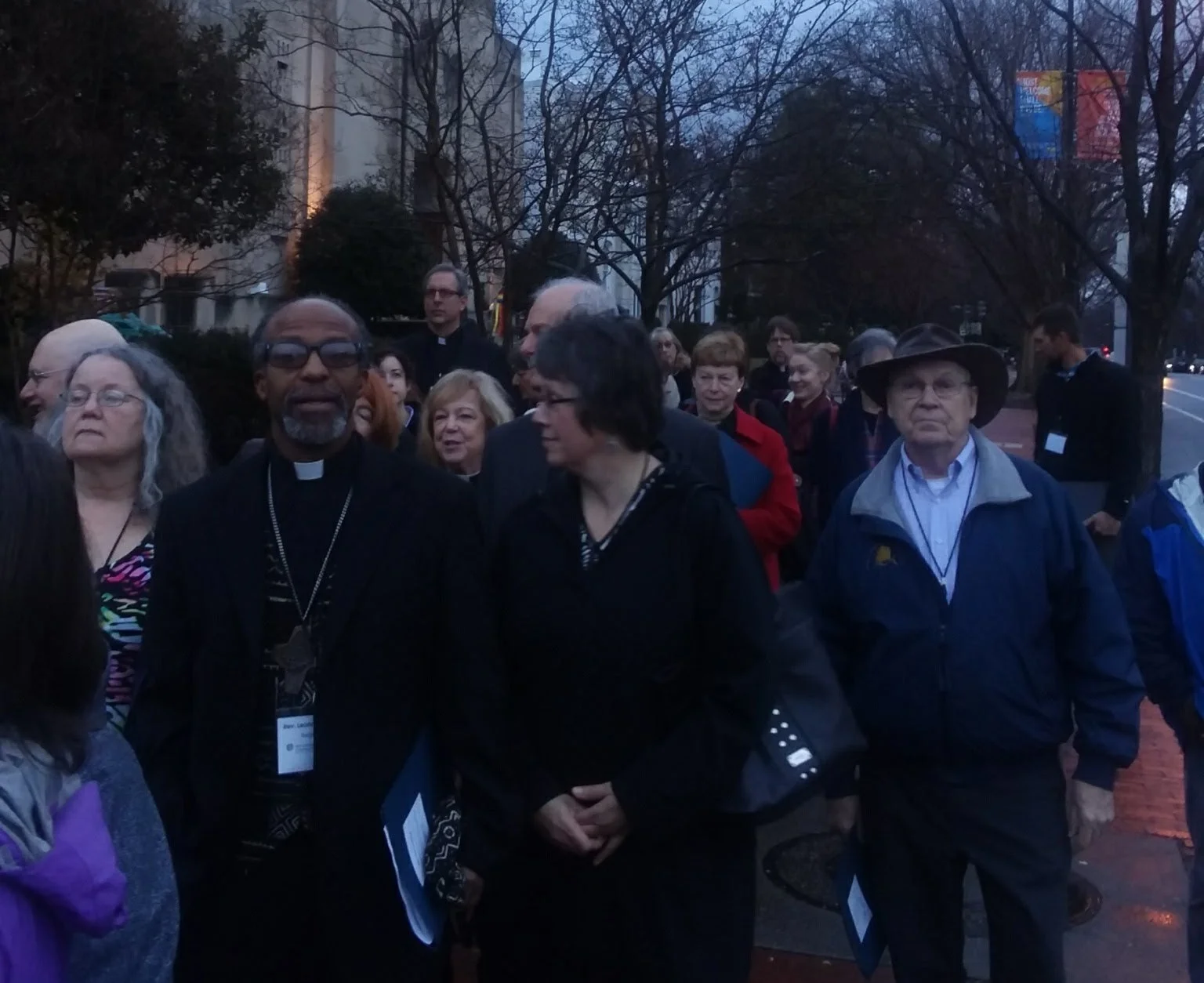ELCA hunger leaders gather in DC to learn about hunger and the U.S. Farm Bill.
Often in advocacy and justice work, we get caught up with building consensus that their are institutional and systemic problems that need addressed. As we spend time trying to get people to engage, we often forget to ask what is the most effective way to engage.
Last week, I had the pleasure of attending the ELCA Hunger Leaders Gathering. We spent time in conversation and dialogue about what we are doing in our communities and how to improve collaboration. Then we discussed the U.S. Farm Bill. This is a piece of legislation dating back to the Great Depression that helped farmers be good stewards of their land and help reduce hunger in America. It is a large and complicated bill that Congress will have to pass this year.
On Tuesday January 23rd, we marched along, with over a hundred Lutherans from across the country, to the Capitol to meet with our Senators and Representatives. Our meetings were generally positive. Some of the staff were well versed in 'farm bill lingo' while others appreciated our education and perspective on the issue.
Lutheran hunger leaders march to the Capitol to begin their advocacy day on the Farm Bill.
One of our members asked, 'what type of difference does this actually make?' Normally when I am asked a question like this, the conversation centers on whether the faith community should even engage the government. My colleague understood that the government must address hunger, but was wondering if our efforts are effective.
I have spent the past few days reflecting on what difference does an advocacy day make. Here are my answers:
1. Advocacy is about education
Too often, hunger is seen as an inner city issue. It is seen as a result of drug addiction or moral failings. Our stories provided an education to staffers that hunger is seen in every corner of Ohio. We were able to educate them (or remind them) that hunger is not a moral failing of the individual, but a moral failing of our society in allowing children, seniors, and others to go without their daily bread.
2. First (and Last) Arguments Matter
The Farm Bill is in its early stages of debate. We encountered a staff member who had not worked on the farm bill previously and didn't understand the harm that block granting would do. As the debate progresses, that staff member will have an image of Lutherans saying it (block granting) is a bad policy. Likewise, a well-timed legislative visit right at the end of a debate on a bill can sway a legislator's vote. Unique arguments also stand out for legislators - and as the faith community our arguments are often unique and different - and extra valuable.
3. Relationships are formed
During our advocacy day, one staffer remembered meeting with me last spring on environmental issues. While one person, attending one event, may not notice these relationships our churches have been doing advocacy for many years. Staff and legislators alike begin to recognize when the 'church vans pull up' or when the 'God squad' arrives on Capitol Hill. They trust the Church.
4. We are not alone
Often, we walk out of a meeting, and wonder what good it does. We know that there are other legislators, party politics, and campaign donors also making pitches and laying out an agenda. But last week, Lutherans spoke to over 120 legislative offices on Capitol Hill. Our Methodist, Catholic, Jewish, Muslim and other secular and faith-based partners are also scheduling their meetings. Before you know it, we have a strong echo reverberating on these issues.
5. Follow-up
The follow up with legislative offices is just as important as the meeting itself. We need to hold public officials accountable for what they say in our meetings. We need to invite them to our events and make sure they remember our stories.
We don't often win or lose a policy issue in a day. But as the Church we are called to witness to a New Heaven and a New Earth. We are called to witness to a world where streams will be healthy, food will be bountiful for all, and war will be no more. Public policy advocacy is one way we live into this reality.
Yes, we are struggling against powerful forces that are embedded in gerrymandering, campaign contributions, and political ego; but our voices still matter in the end. Sometimes, those forces will be stronger than our voice, but we must always remember that it was a young servant named David who defeated the giant Goliath. On paper, we might be out-matched, but we have strength from a our faith and that will carry us through to improve public policy and feed our world.
Special thanks to Senator Sherrod Brown (Lutheran-Ohio) for addressing our gathering and thanking us for our advocacy on the farm bill.



